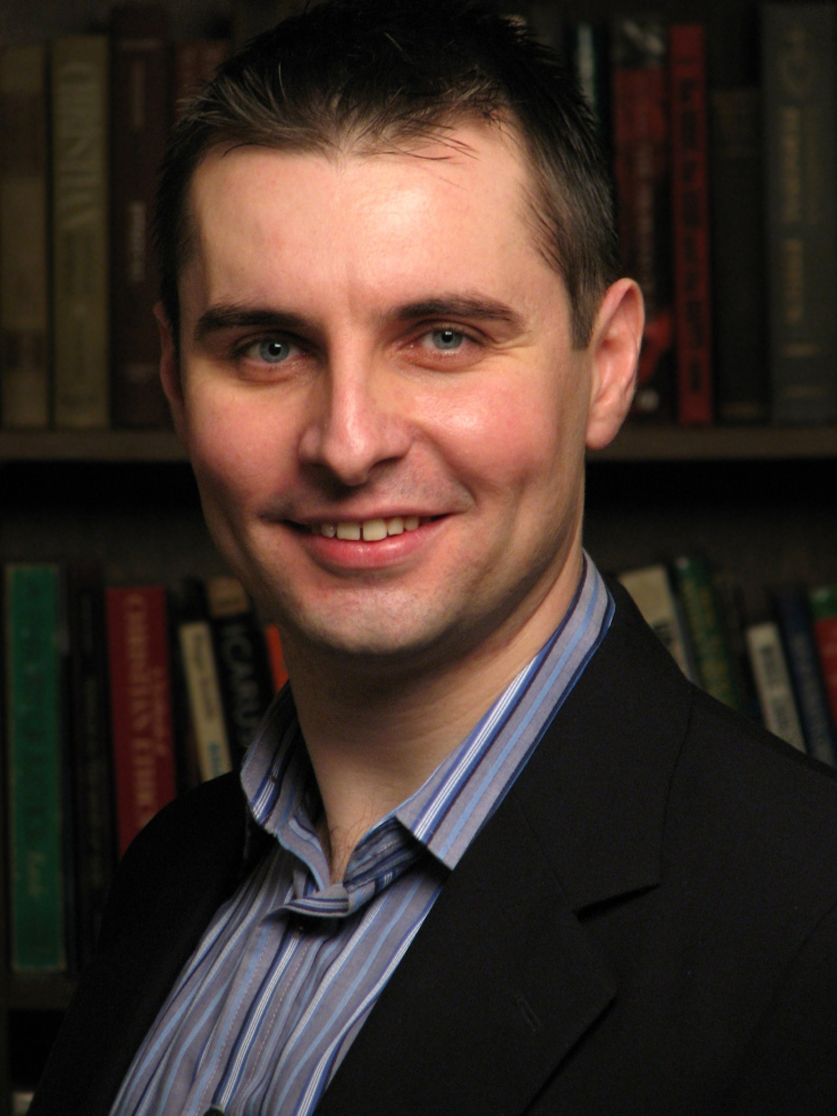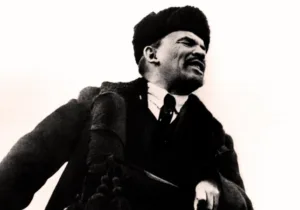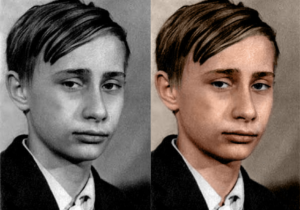I was born and raised in Czechoslovakia behind the Iron Curtain dividing the free and communist worlds during the Cold War. My education included the beliefs that there was no God and that religion was a sinister force that brought slavery instead of freedom. It was an “opiate of the masses” that caused people to passively accept whatever was given to them and hope for a better life in heaven. Spiritual emptiness and the absence of meaningful purpose in my life manifested in poor academic performance, among other things. I ranked at the very bottom of my high school class and was not allowed to graduate.
When I was a high school junior, communism collapsed in Europe, and the Marxist-Leninist ideology suddenly became obsolete. As someone who participated in the Velvet Revolution, I counted myself incredibly fortunate that I no longer had to live in a totalitarian state that suppressed our basic freedoms. After experiencing political freedom, in 1991 I converted from atheism to Christianity and experienced spiritual freedom. One of the fruits of my conversion was a desire and commitment to pursue theological education. America gave me that opportunity.
In 1995, I left everything behind and landed in New York City. I had no return ticket, no suitcase, no income, no family or friends in America, and limited knowledge of English, which I started to learn as an adult. But I had faith in God and the dream that America still offers for those “tired, poor, huddled masses yearning to breathe free.” My dream was to adequately prepare myself for Christian ministry by earning a bachelor’s degree at Zion Bible Institute, an obscure institution formerly located in Barrington, Rhode Island. The school graciously awarded me a full scholarship and gave me a chance to pursue my dream.
After completing my undergraduate studies, my improbable academic journey took me to Gordon-Conwell Theological Seminary, Harvard University, the University of Chicago, and Boston University. At three of the aforementioned institutions, I completed my degrees with a perfect grade point average while having familial and job responsibilities. The arduous journey was completed, and my American dream was fulfilled in 2020 when I received a professional doctorate in transformational leadership.
By any measure, this is not a small accomplishment that would make my late parents, who worried about what would happen to me once I become an adult, extremely happy. Nonetheless, a modicum of pride I may occasionally experience as a result of my achievement is always tempered by the intense realization that none of this would be possible without divine help and American goodness. It would take a book to enumerate all the manifestations of that goodness.
In short, America—and good, decent people who live here—has allowed me to become who I am and gave me everything I have. I doubt my story would be possible in any other country, but even if it was, it happened here. As a symbol of my gratitude, I became a US citizen in 2007. Several weeks prior to that special day in my life, I was diagnosed with cancer. I remember thinking that if my life would be cut short by this disease, I wanted to die as an American.
American medicine helped me survive, and on the twentieth anniversary of the Velvet Revolution in Czechoslovakia, my wife and I founded in Chicago a small nonprofit that works for positive transformation in post-communist Central and Eastern Europe. In the first decade of our ministry, we focused on our native Slovakia, where our ministry was well received. This was not the first time American goodness benefited our corner of the world directly or indirectly.
My legs have been spread across the Atlantic, one in Slovakia and the other in the United States, which has provided me with a unique perspective on both countries. When I talk about “goodness” in this article, I am using the word comparatively. When compared to an ideal, the United States does and always will fall short. But at the same time, it approximates the ideal of goodness better than most other countries, including Slovakia. If ever in doubt, just ask any immigrant. One’s feet tell the truth.
The summer of 2020 is a period I will never forget. At the end of my academic journey, my heart was full of gratitude for the goodness of America, but also grieved that so many failed to see that goodness. The crisis of the mainstream media was also fully on display. Pundits, politicians, and other members of the ruling class seemed to be talking about a different country than the one where I lived for a quarter of a century and which allowed me and my family to accomplish our audacious dreams.
I say my family because this country has not only been good to me but also allowed my daughter to achieve her goals. A child from a low-income family, born with a visual impairment and developmental delays, Danni moved through the Chicago public school system and graduated from Wellesley College and the University of Chicago. She is deeply grateful to this country and decided to repay her debt by serving it. After completing her internships for the Senate and House of Representatives and a fellowship with the Tom Lantos Human Rights Commission, she recently took a job in the federal government.
America is not an earthly paradise, and regardless of how hard we try, it will never become one. Closing our eyes to problems we face would not do anybody any good. We need to recognize and confront the destructive influence of far-left ideologies, the threat of right-wing extremism, the excessive partisanship, the danger of oligarchy, growing income inequality, inadequate civic education, erosion of social ties, decline in civility, opioid epidemic, and violence in our cities, just to name some of the most glaring diseases of American society.
It saddens me greatly that America may be—in some important respects—a worse place today than when I first arrived. But maintaining the proper perspective is essential if we want to reverse the damage and improve our country. That perspective will only emerge if we see the good in our history and present, hear many more stories such as this one, and be grateful for the good that the American people are generating every minute of the day.
Christmas is an opportune time to pause and reflect on this goodness and recalibrate our hearts to gratitude. Constantly focusing on negative things in our world robs human beings of joy and makes their lives as well as those around them unhappy. Ingratitude toward America seems to be, paradoxically, more prevalent among elites than the general population, but nobody is immune from this egregious sin that begets many other sins.
Christmas is also about hope. Historian Wilfred M. McClay in his splendid book Land of Hope: An Invitation to the Great American Story makes a point that resonates with my immigrant experience and is worth pondering:
Hope has both theological and secular meanings, spiritual ones as well as material ones. Both these sets of meanings exist in abundance in America. In fact, nothing about America better defines its distinctive character than the ubiquity of hope, a sense that the way things are initially given to us cannot be the final word about them, that we can never settle for that. Even those who are bitterly critical of America, and find its hopes to be delusions, cannot deny the enduring energy of those hopes and are not immune to their pull.
This year, I will spend the Christmas season in our nation’s capital. As I visit the important monuments, I will thank America for adopting me as her son, giving me the opportunity to chase and even accomplish my dream, and allowing my story to become a small part of the great American story. I will also pray to God that this country will always remain a place where people can achieve their highest aspirations and find true happiness—the land of hope and opportunity.






